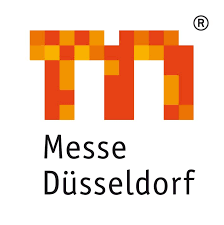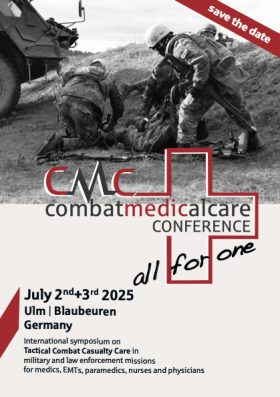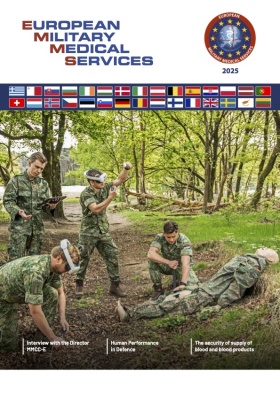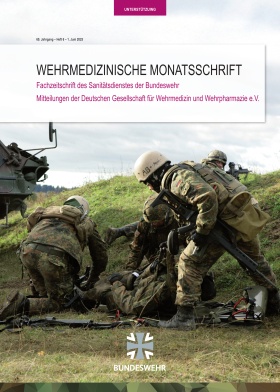
Article: R. VOLLMUTH (GERMANY)
Healthcare Professionals between Medical Ethics and Military Duties
Beware of the “Slippery Slope”
In connection with the profession and status of the medical officer, we consistently encounter a conflict between the roles of doctor and officer. The following article looks at this conflict of conscience in context of history, ethics and law.
The conflict between the roles of doctor and officer has always been part of military actions; actually, this recurring theme appears as a kind of metaphor for a wide variety of conflicts (of conscience) that tend to be vaguely sensed rather than tangibly defined. And indeed, perhaps there is no other area of the military in which so many contradictions (some of which concern basic assumptions about which there is general consensus in society) are more apparent than in the role of the medical officer, who pairs two conflicting job profiles. We can also see this if we look at the history of the world wars, during which time some military doctors sacrificed themselves for their patients while other parts of the military medical services willingly allowed themselves to be abused; with complete disregard for any kind of medical ethics.
Ethical Standards and Legal Requirements
The duties of a soldier and the limits to a soldier’s legitimate use of force result from national and supranational legal norms; in Germany, for example, these limits are set out within the national framework of the German Basic Law (Grundgesetz), the Act Concerning The Legal Status of Soldiers (Soldatengesetz), and criminal law. They are internationally defined mainly in international laws of war and in International Humanitarian Law. The basic ethical consensus for the medical profession has been passed down from antiquity in the Hippocratic Oath. Today it lives on in a somewhat modified and updated form, yet unchanged in essence, in the Declaration of Geneva (the, incidentally, other declarations of the World Medical Association likewise set important ethical standards). Some key points are to serve humanity, to respect secrets, and that the health of the patient should be the first consideration, irrespective of nationality, ethnic origin, political affiliation, social standing, or any other characteristics of the patient. But in addition to these ethical – though not legally binding – requirements, there are legal norms which define fundamental ethical values according to their nature: The professional codes for physicians, regulations for licensed practitioners, the German Federal Medical Code (Bundesärzteordnung) and similar legislation for all types of licensed practioners, International Humanitarian Law, and many more. All of these make it clear that it is not at the discretion of medical officers to decide what their role is, but rather that their role is determined by ethics and by law, and that penalties can be imposed if limits are breached. To acknowledge this is extremely important for the debate, given that it is often assumed that medical personnel retreat into noncombatant role for a variety of self-serving reasons – or use it as an excuse.
This is where the contradictions start to become apparent: It is part of a soldier’s job description, and part of their legitimate and lawful duties to confront other people with armed force, to injure them, and ultimately perhaps to kill them. By contrast, the task of physicians (as formulated in the Model Professional Code for Physicians in Germany [Musterberufsordnung], which is quoted several times below) is “to preserve life, protect and restore health, alleviate suffering [...].” Soldiers’ actions are guided by their mission, whereas “medical activity must be in accordance with the welfare of the patient” and “physicians are forbidden to engage in any other activity that is irreconcilable with the ethical principles of the medical profession.” In the military, the principle of command and obedience applies, but doctors claim to be members of a free profession and “may not accept any instructions from non-physicians concerning their medical decisions.”
These obvious contradictions produce specific ethical dilemma situations, characterized by the medical officer having to decide between competing and mutually incompatible courses of action. The range and dimensions of these dilemmas can only be outlined briefly here: There is an unlimited obligation toward the patient, but doesn’t a medical officer need to defend the interests of his or her employer in terms of the operational readiness of troops and fair distribution of resources? What counts more: Instructions from superiors in this hierarchically structured system that is the German armed forces (Bundeswehr) or physicians’ freedom, i.e. physicians’ obligations toward the patient’s well-being and their own conscience? And during operations, doesn’t the question arise as to whether it can be ethically justifiable to give one’s own soldiers preference over neutral persons or even enemies if this disadvantages the latter? Which of the operational tasks that are demanded or expected by some troops are actually compatible with the image of the physician and his professional ethics and when are the ethical and legal boundaries breached? What is more important: the patient’s well-being or mission fulfillment?
A Look at History
The two following examples show how differently the mission of the medical profession has been interpreted and what a contradictory and unfortunate role some military doctors played in German history. These examples demonstrate the conflict between concern for the well-being and healing of the individual on the one hand and the military mission and hence the (at any rate supposed) common good on the other. During the First World War, the medical service was faced with a completely new phenomenon, for which the terms “war neurotic” (Kriegsneurotiker) and even “war trembler” (Kriegszitterer) were used. These were soldiers who had been seriously traumatized by their experiences of trench warfare under constant bombardment. This manifested itself in extreme shaking and tremors or paralysis. Treatment methods were developed in military psychiatry that were geared more to disciplining than healing the soldiers. The notorious Kaufmann cure consisted of applying electricity (or, more accurately, electric shocks) to the body; other “treatments” included isolation, military drills, and other deterrents. It was assumed that traumatized soldiers mainly lacked strength of will; often they were accused of feigning their symptoms. Thus it was not – as would have been ethically appropriate – the patient’s well-being that was the focus of physicians’ efforts, but rather the interests of third parties – the opinion that military doctors, through such restrictions and discipline, had to serve “Kaiser, people, and fatherland” above all else. Sigmund Freud later likened the military psychiatrists who used these methods to drive soldiers back into combat to “machine guns behind the front”.
In preparing for and conducting the Second World War – this is our second example – many senior medical officers and scientists, even if they had not become ideologized by the National Socialists, were corrupted while fulfilling their scientific or professional ambitions. They allowed themselves to be exploited by and made subservient to a criminal regime conducting war of aggression and destruction. They felt themselves to be “doctor-soldiers” and in some cases were even directly involved in authorizing or carrying out inhuman medical experiments that were in no way compatible with medical ethical standards. Yet no doubt even these criminals would not have regarded their criminal acts as being unethical or nonmedical, and would instead have offered the justification that they had sacrificed the few to save the many with the findings obtained from these experiments.
Thus it becomes clear, just from these two examples, how fragile medical ethics can be given a misunderstood sense of duty or under the pressure of actual or supposed military necessity and how quickly this fragility can lead to a descent into an ethical abyss or even to committing crimes.
From Macro to Micro Level
Members of the Bundeswehr medical service at times face the accusation, with reference to Germany’s past, that any form of military medical service is ethically contentious in itself. Military doctors, so the argument goes, along with other licensed practitioners and medical assistant personnel, do not act (or provide treatment) on the basis of any humanitarian motivation or fundamental convictions. Instead, their efforts (as happened in the two world wars) are aimed solely at maintaining or restoring fighting capacity. It is impossible to conduct war without medical services, which means that doctors share in the responsibility for wars. Transferring these historically derived accusations to the Bundeswehr medical service is untenable, however, since the Bundeswehr is fundamentally different to its predecessors. Prior to the Kellogg-Briand Pact (war renunciation treaty) of 1928, war was regarded as a legitimate policy tool, with the result that the armed forces of the German Empire were an instrument for asserting national interests. Despite this treaty renouncing war, the Wehrmacht let itself be abused in and by a dictatorship to wage a war of aggression, conquest, and destruction. The Bundeswehr, in contrast, is an army controlled by the German parliament and tasked with defending a free and democratic state as well as, in operations that are legitimate under international law, basic liberal and humanitarian values. On this basis and in light of binding legal standards applicable to the military, which I outlined above, the Bundeswehr medical service can already – on a macro level – justifiably expect to have a basic positive ethical attitude. As I see it, an important addition would be to make the basic idea and fundamental rules of the Geneva Convention – i.e. the concept of neutrality for noncombatants and the prohibition of their active participation in and support for combat operations – a maxim of one’s actions, even if (as in the Afghanistan mission) the technical legal applicability is in question. This is the only way to prevent our own value system leading us to absurd conclusions. The “slippery slope” argument also comes into play here: there is indeed a danger that because of the strong predominance of the legally exceptional situation, medical personnel will find themselves on a slippery slope and no longer recognize or acknowledge the rules laid down in international law.
Yet it is not only the self-perception of medical officers and all medical personnel which is important, but also the perception of others and acceptance of this special status in other corps, especially among combat troops and in the military leadership. Thus, we are entering the meso level, and hence, referring to the positioning of the medical service in the overall structure of the Bundeswehr. More than is currently the case, the medical service needs to effectively communicate that its members are not only subject to the provisions of International Humanitarian Law, but are also bound by a system of values specific to their occupation, the standards, obligations and protective functions of which are regulated with legally binding force at a national and international level. The examples from history show what unfortunate consequences can result from the misinterpretation, abandonment, or indeed exploitation of this value system for other purposes, both in respect of patient well-being and the lasting credibility of the medical profession and all medical personnel. Only if this is understood and accepted can it keep medical officers and medical personnel from becoming structurally involved in tasks, which are incompatible with this status; this is the only way to prevent these actors being thrown into avoidable dilemma situations due to the ignorance of third parties. Members of the medical service are not “auxiliary infantry” or a hidden military reserve, and nor does their status allow them to avoid dangerous or unpleasant activities. Rather they are simply subject to different rules, which should be acknowledged in the overall structure of the Bundeswehr with no “ifs or buts” as one facet of the rule of law.
Yet ethical dilemmas can always arise – not only at these two higher levels, but also and especially at the micro level (the level of the people working in the medical service, in their everyday actions) during both operations and routine duties. As mentioned above, on closer inspection, conflicts with individual patients or among medical personnel, conflicting loyalties, and vacillation between commitment to the patient and actually or apparently contradictory instructions or service regulations are constantly present: Should one follow one’s own professional opinion, or should one give in to external influences? How can patients’ expectations be reconciled with professional principles or available resources? How important are official interests when it comes to diagnosis, treatment, medical leave, and physician-patient confidentiality? What relationship develops with patients who would prefer to see a different doctor they trust rather than the designated military physician?
Certainly, it is possible to explain, resolve, or at least move closer to a solution to these and many other ethical dilemmas by referring to highly complex and philosophical ethical theories and concepts. However, it is vitally important that people who work in the medical service have a problem-solving strategy, which they are able to apply in their everyday (military) medical activities. “Principle ethics” – as devised by Tom L. Beauchamp and James F. Childress in their textbook “The Principles of Biomedical Ethics” – is widely known in clinical medicine and well suited to application in daily medical practice. It is based on four principles: Patient autonomy, non-maleficence (doing no harm), beneficence (acting in the other person’s best interests), and justice – i.e. there is a very widespread consensus and a high level of understanding regarding the general validity of these categories. Whereas patient autonomy, non-maleficence, and beneficence solely and exclusively relate to the patient, the principle of justice takes the interests of third parties into account as well. These principles are evaluated and weighed against each other, enabling an overall assessment and decision, which, although subjective in terms of the weighting of arguments, is nevertheless justifiable and comprehensible.
However, in somewhat modified form, principle ethics as developed by Beauchamp and Childress can be applied to other fields such as military medical areas of conflict and dilemma situations. Thus numerous instances of ethical doubt, particularly those patient-related cases that occur in everyday medical treatment, can be resolved using this tried-and-true tool. The three patient-centered principles – non-maleficence, beneficence, and patient autonomy – safeguard the interests of soldiers who are assigned to the Bundeswehr medical service, just as the principle of justice ensures that the legitimate interests of the employer and fellow soldiers (who may be put under greater strain or in danger due to the absence of patients) are taken into consideration in an ethically sound decision-making process.
If ethical conflicts arise in the medical service’s internal and external relations, i.e. among members of the medical service or with respect to third parties, principle ethics can be modified so that the do-no-harm and do-good principles relate to the persons concerned, and patient autonomy is replaced with a principle of human dignity or self-determination, while the principle of justice remains and continues to represent the legitimate interests of third parties. For example, it is conceivable that these modified principle ethics could be applied when members of the medical service themselves need to define their position between medical ethics and military necessity.
It has only been possible in this article to briefly outline the many facets of the Bundeswehr medical service’s professional self-image and the ambivalence between medical ethics and military necessity; there is certainly need for a more in-depth treatment. However, there is historical justification for arguing – and it can hardly be disputed – that education and training in medical ethics for members of the Bundeswehr medical service need to be significantly stepped up. In addition, it is equally important to clearly communicate the special features and rules that are effective in the medical service, both within the Bundeswehr and to the public.
Author:
Lieutenant Colonel (MC) Prof. Dr. Ralf Vollmuth
Zentrum für Militärgeschichte und Sozialwissenschaften der Bundeswehr
Zeppelinstraße 127/128
14471 Potsdam
Germany
E-Mail: [email protected]
Date: 04/07/2016
Source: MCIF 2/16











